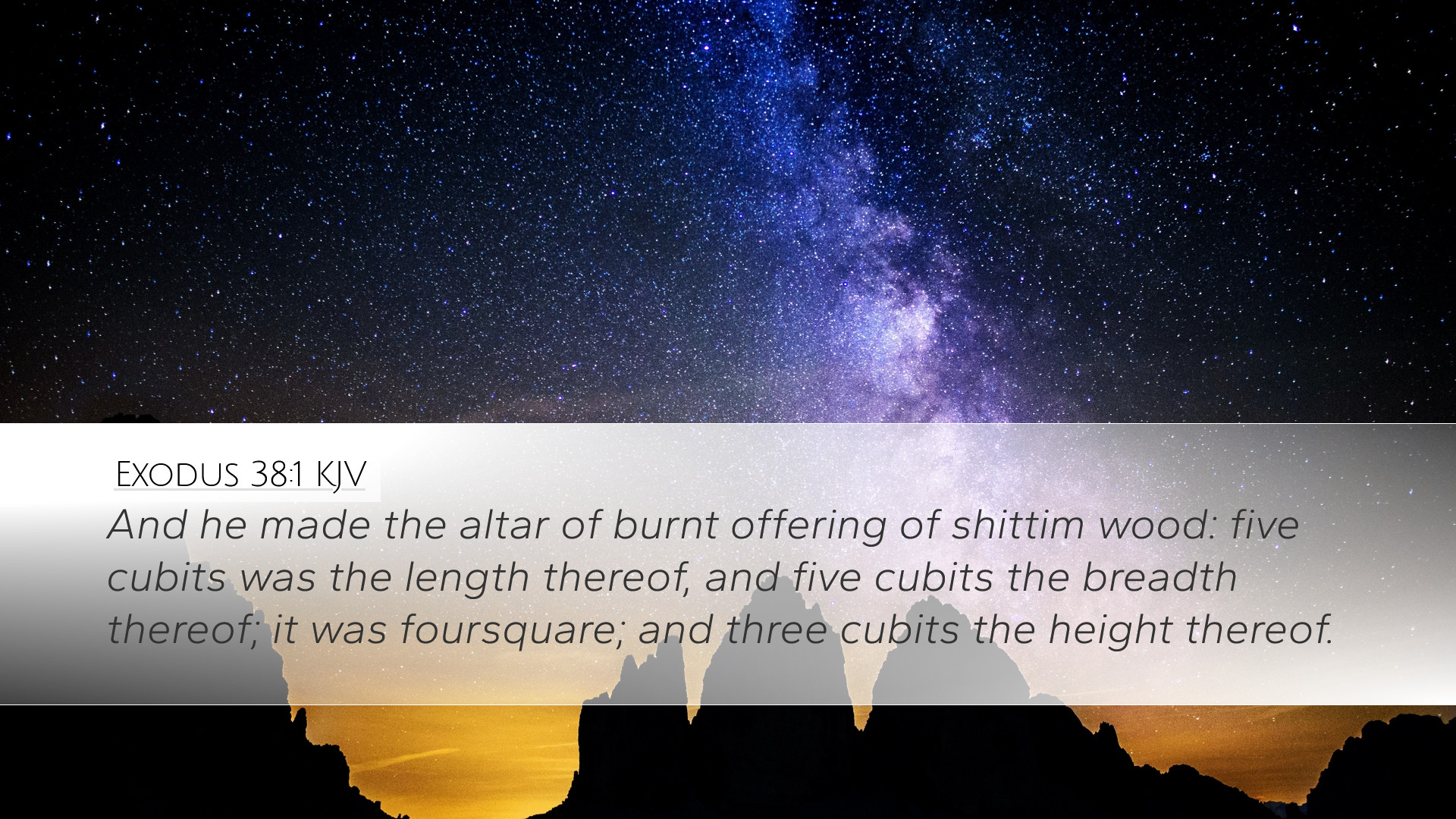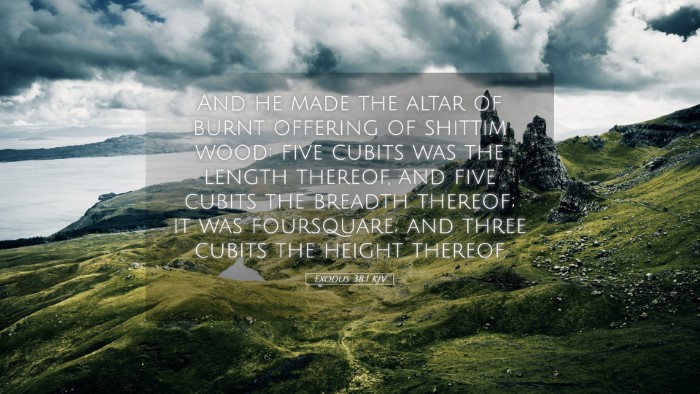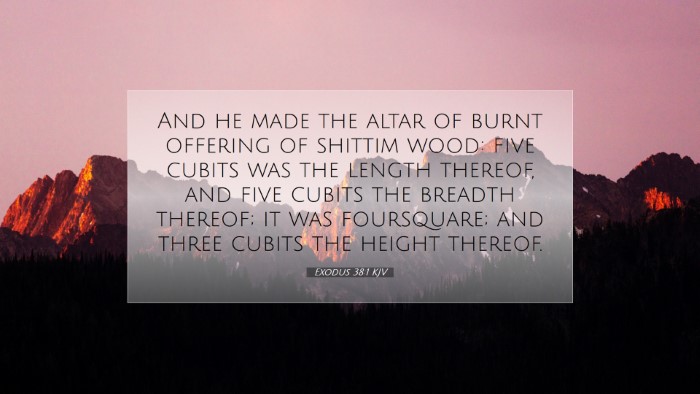Commentary on Exodus 38:1
Exodus 38:1 states:
"And he made the altar of burnt offering of shittim wood: five cubits was the length thereof, and five cubits the breadth thereof; it was four-square; and three cubits the height thereof."
Introduction
This verse serves as a significant detail in the construction of the Tabernacle. The altar of burnt offering embodies fundamental aspects of the sacrificial system that would define Israel's worship and relationship with God. The careful descriptions and measurements underscore the precision required in worship.
Significance of the Altar
The altar of burnt offering is central to the sacrificial system ordained by God. As Matthew Henry insightfully notes, the altar represents:
- Avenue for Atonement: It was the place for atoning sacrifices, fundamental for Israel's approach to God.
- Symbol of Obedience: Constructing the altar as directed reflects Israel's adherence to divine instruction.
- Foreshadowing Christ: The altar prefigures the ultimate sacrifice of Jesus Christ, emphasizing the necessity of sacrifice for atonement.
Material and Construction
Albert Barnes highlights the significance of the materials chosen for the altar: shittim wood, also known as acacia wood, suggests durability and resilience, mirroring the enduring nature of God’s covenant.
Adam Clarke elaborates on the dimensions:
- Five Cubits: The specifications reveal a balance of accessibility and reverence.
- Four-Square Design: Emphasizes completeness and the perfection of God’s order in worship.
- Three Cubits Height: Reflects the elevation of worship above the commonality, drawing attention to the holiness required to approach God.
Theological Implications
This verse is rich in theological implications:
- Holiness of God: The precise measurements and materials reflect the holiness of God and the seriousness of approaching Him in worship.
- Concept of Sacrifice: Without the shedding of blood, there is no remission of sin (Hebrews 9:22). The altar signifies the cost of atonement and the necessity for sacrifice in God's redemptive plan.
- Community Aspect: The altar was not for individual use but served the entire community, highlighting the corporate aspect of worship and sacrifice.
Application for Today
For pastors, students, and theologians, Exodus 38:1 encourages a deep reflection on the nature of worship in the contemporary church:
- Understanding Worship: Worship should be approached with reverence and an acknowledgment of God’s holiness, mirroring the meticulousness of the altar’s construction.
- Emphasis on Sacrifice: While physical sacrifices are no longer required, the principle of sacrifice in the form of our lives (Romans 12:1) remains essential.
- Community Focus: The altar's communal aspect reminds the church of its collective identity in worship, urging a unified approach to service and sacrifice.
Conclusion
Exodus 38:1 encapsulates foundational truths about worship, sacrifice, and community in the biblical narrative. As we reflect upon these aspects, may we be inspired to approach worship with the same seriousness and dedication prescribed in the construction of the altar, fully recognizing its implications for our relationship with God.


